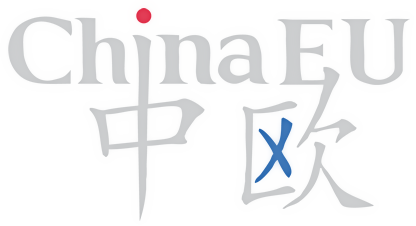Online Pharmacy and telemedicine new giants in China
Online Pharmacy and telemedicine new giants in China
.png)
By Federico Giorgetti
The huge population of emerging countries and its pharmaceutical retail market generates huge return opportunities and new business models. Official data showed that in 2017 total pharmaceutical stores hit more than 453,000, in which some 229,000 belong to 5409 chain companies, leaving behind a daunting logistic hurdle to source the drugs from the pharmaceutical manufacturers and delivering them to the patients.
In this business, a fertile landscape for new ideas, executives with a solid track record in the supply chain and logistics have seen the opportunity to solve several problems at once integrating both the b2b segment of supplying drugs from pharmaceutical companies to the stores, and the b2c model of supplying drugs directly to the customers applying a de facto b2b2c model and attempting to consolidate in one shot both segments of the supply chain referred as consolidation on the supply chain rather on equity seen how slow it has been to form retailers of a critical mass.
The b2b2c model is also open to be integrated to other solutions in the modern healthcare world big data, clouding and telemedicine and can encompass all smart solutions in the healthcare industry. China’s overhaul of its healthcare system stretches back to 2000s or earlier. In 2016, China’s cabinet, the State Council, unveiled the Healthy China 2030 Outline for its national health progress. In recent years, China’s major tasks of medical reforms have included centralized medicine procurement and lower prices of anticancer drugs.Since 2017, The China Food and Drug Administration (CFDA) has approved several key laws 1) reduction of general tariffs on 28 medicines mostly generic drugs and chemotherapies 2) Procurement centralized for the 11 most important cities 3) fast tracking of clinical trials 4) deregulation of biosimilars and has jumped on the opportunity provided by online pharmacies to better reach out to patients and bridge the supply chain vacuum.
The CFDA commissioned the authoritative domestic media VCBeat (https://vcbeat.top) in summer 2018 as auditors to appraise over 10 domestic online pharmacies on several aspects (anti-counterfeiting systems, drugs efficiency and potency, processing and delivery speed) and two companies have clearly stood out, Yiyao (www.111.com.cn) and Jianke (www.jianke.com).
.png)
Former executives of Dell China Yu Gang and Liu Jinglun founded in 2008 an online retailer called onegoodmall (Yihaodian) to distribute food and appliances to Chinese mainland customers and its operations were so successful, that manage to attract interest from the US giant, Walmart, while Liu and YU stayed on as managers and minority shareholders. In 2015, when Walmart bought 100% of the shares of onegoodmall, Liu and Yu spun off the pharmaceutical part of its operations and one drugstore (111 Inc) was born.
After completing several financing rounds in less than a year, 111 Inc went public as YI on NASDAQ on Sep 12th 2018 and in the published account declared a 102% revenue increase from the previous year serving 150,000 pharmacies with the goal to reach 230,000 by the end of 2019. And having already achieved the mark of 170,000 after 2019 Q1. The prescription orders went also up more than 6-fold from 2018 Q1 at 21,230 to 2019 Q1 141,650. Key partnerships have been struck with top Pharmaceuticals companies like Eli-Lily with GM Asia Mr Giulio Gay-Ger that defines 111 Inc as “top of the industry in terms of exploration of the new retail avenue””, Pfizer, J&J, Menarini and also domestic ones, the excellent relationship with Dr Liu recognizes as one of the key point of success of 111 Inc.
The operations are organised into 3 segments, the core online pharmacy called 1 drugstore, an online patient consultation platform called 1 clinic and 1 drug mall an online retail shop that provide pharmacies with all different sorts of equipment.
1000 doctors makes 1 clinic strong and this is key in shortening China Hospital surcharge especially when patients with chronic conditions are not allowed to multiple medical prescriptions and the connection “internet+ healthcare” was pushed forward from government backing in several keynote events, like a company presentation in Shanghai on March 23rd and Wuhan west China Healthcare conference in April in which Doctor Guang Yu referred to the integration of manufacturing-retail-patients and online as a “fourth sales channel” enabling an enhanced logistic.
A very interesting partnership has been launched with the municipality of Kunshan the 1st one of 50 China pilot smart cities in the outskirts of Shanghai to explore the potential connection between smart cities and healthcare data particularly in the electronic record field keeping and clouding all patient’s data and the daily working routine of family doctors.
The retail platform has also established a long-term strategic partnership with life Insurance provider Manulife as the whole sector booms after Jack ma Ant Financial launch of the online healthcare coverage “Xiang Hu Bao” that rapidly reached 65M users.
Headquartered in Guangdong and main speaker at Shanghai digital health marketing conference at the end last year, Jianke good doctor was founded by Ex Dell Fangming Xie in 2005.
It also focuses on the Healthcare+Internet model with a telemedicine platform were over 6000 doctors from the best hospitals grade in China provided their online consultation services with other 100,000 doctors whom registered to facilitate the online and offline medical prescriptions. Continuous medical education for physicians will also be served by a dedicated platform called “Dajianhao”.
.png)
Pharmaceutical retail is also the main commercial operation with a remarkable partnership struck with Pfizer as said by the word of Pfizer China GM Mrs Ren XiaoXiu “Pfizer will leverage on Jianke ‘s internet based new retail channel to create our own B2C and online-offline business, and also create a new marketing channel”. Industry leaders like Abbot and Gilead also followed to embark.
After successful early stages in 2017 and 2018 that have attracted beside healthcare specialist funding (Shenzhen based GTJA and Zurich Based HBM Healthcare) also a one-off investment from California oil & gas specialist private equity firm Crescent Point and is expected to get listed in Summer 2019.
While 111 Inc and Jianke biggest expertise is pharmaceutical retail, the giant of telemedicine and this online-offline consultation model is definitely Ping’an good doctor.
Founded by former executives of Alibaba Hangzhou software department and backed by the giant Blackrock, it went public on HKEX as 1833 last June raising 1.2B USD.
The first quarter of 2019 has seen operations reaching 1200 in house doctors, 5200 external doctors and 78% year to year revenue increase from 2018.
One of the biggest strengths of Ping’an is a team of over 200 AI specialist that focus on developing and adopting new healthcare deep learning protocols that are added to the platform when they reach 99% reliability and develop a clear cost cutting strategy advanced as outlined by Ping’an COO Ms Bai Xue last November at Women Global Innovation summit “offline consultations reduce the cost by two thirds” and another one is voice recognition field with joint investment with the firm Unison to develop a voiceprint login system or “voice lock” suitable and reliable for elderly and middle aged users.
Another Key feature of Ping’an good doctor is the investment in unmanned medical clinics first showcased at Wuzhen Internet conference in November 2018 and after a trial in key spots like Jiaotong University, Jiading Volkswagen Factory and Nanjing Siqiao expressway signed an agreement to provide 1000 unmanned clinics to eight rural provinces to tackle the shortage of doctors in those areas. Dr Wang Tao CEO of Ping’an went as far as saying that “the era of offline medical services has finished “ as the company undertakes construction of Hospital cloud, Clinic cloud, pharmacy cloud and village medical cloud.Federico Giorgetti is an author at Gooruf.com. The author contributed this article to ChinaEU. The views expressed do not necessarily reflect those of ChinaEU.

